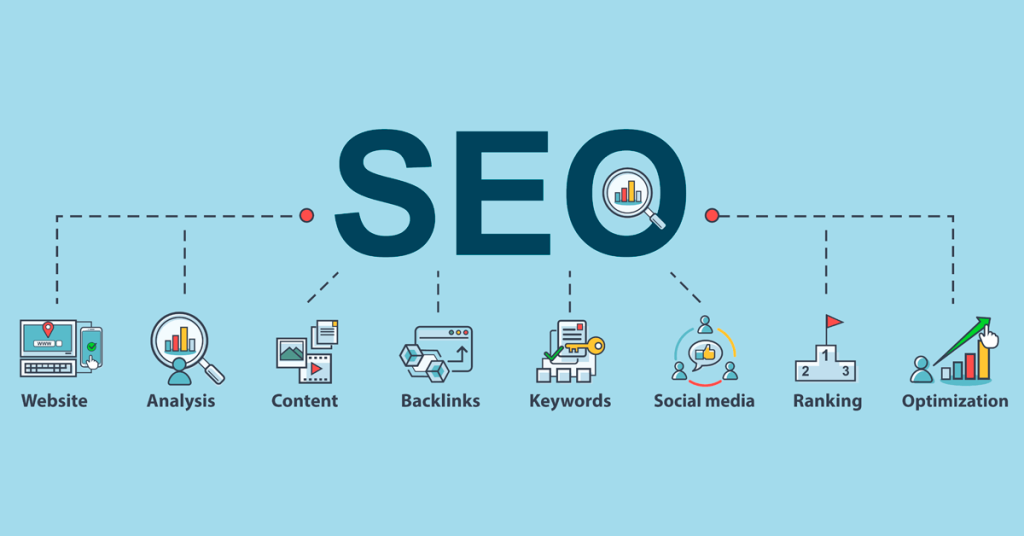In the ever-evolving digital landscape, data and analytics have become critical tools for shaping effective marketing strategies. When it comes to Digital PR, leveraging data allows agencies to optimise campaigns, measure success, and ensure that their efforts resonate with the right audience. By using data-driven insights, Digital PR agencies can make more informed decisions, refine their strategies, and ultimately boost your brand’s online presence. Let’s explore how Digital PR agencies use data and analytics to elevate your brand.
Identifying the Right Target Audience
One of the first steps in any Digital PR campaign is identifying the right audience. Analytics tools help agencies understand who your potential customers are, where they spend their time online, and what type of content they engage with most. Using data from social media platforms, Google Analytics, and other sources, agencies can segment your audience by demographics, interests, behaviours, and even geographic locations.
By analysing this data, a top digital pr company in UK can fine-tune your campaign to ensure it reaches the right people with the right message. This data-driven approach helps brands avoid wasting resources on ineffective outreach and instead focus on building a targeted audience who are more likely to engage with the brand.
Optimising Media Outreach with Data Insights
Media outreach is a cornerstone of Digital PR. Traditionally, PR professionals would send press releases and pitch stories to journalists in the hopes of gaining media coverage. However, with data, agencies can now identify which publications, journalists, and bloggers are most relevant to your brand’s niche.
Through tools like media databases, social listening platforms, and past campaign analytics, Digital PR agencies can pinpoint which outlets have the most engaged and relevant audiences. This means that rather than sending a generic pitch to everyone, agencies can craft highly targeted outreach efforts that are more likely to result in coverage. By understanding which outlets have the best chance of amplifying your message, agencies can ensure that your brand is getting the attention it deserves.
Content Strategy and Creation Based on Data
Content is at the heart of Digital PR, and understanding what type of content resonates with your audience is key to crafting a successful strategy. By analysing past content performance and audience preferences, Digital PR agencies can create highly relevant, engaging content that is likely to capture attention.
For example, using data from social media insights, blog analytics, or keyword research tools, agencies can determine what topics are trending, what questions your audience is asking, and which formats (videos, blogs, infographics, etc.) are performing best. This allows them to craft content that aligns with your audience’s interests and delivers the right message, maximising the chances of successful media placements, social shares, and backlinks.
Influencer Collaboration: Data-Driven Decisions
Influencer marketing is a powerful component of Digital PR. However, working with the right influencers can make all the difference. Agencies use data to evaluate which influencers are the best fit for your brand based on their audience demographics, engagement rates, and content relevance. Tools like influencer databases, social media insights, and engagement metrics help Digital PR agencies identify influencers who can provide the most value for your campaign.
By using data to analyse an influencer’s reach and audience engagement, agencies can partner with those whose followers are most likely to be interested in your brand. This ensures that your influencer collaborations are not only authentic but also reach a highly targeted audience, increasing your brand’s visibility and driving more conversions.

SEO and Backlinking: Enhancing Online Visibility
Search Engine Optimisation (SEO) is a critical part of any digital strategy, and Digital PR agencies often use analytics to improve SEO through content and backlinks. Backlinks, in particular, are essential for boosting a website’s domain authority and search engine ranking. Agencies use data to identify high-authority websites, blogs, and media outlets where they can secure backlinks, which ultimately improve SEO.
By tracking the quality and quantity of backlinks, agencies can assess the success of their media outreach efforts and make necessary adjustments. Analytics tools help track which backlinks are driving traffic, how they are influencing rankings, and whether they contribute to higher visibility in search results. This data-driven approach ensures that Digital PR campaigns not only improve your online reputation but also enhance your brand’s SEO performance.
Conclusion
Data and analytics are at the heart of successful Digital PR campaigns. By leveraging data, Digital PR agencies can identify target audiences, optimise media outreach, track performance, enhance content strategies, and maximise influencer collaborations. These insights not only help refine campaigns but also ensure that your brand’s online presence is continuously growing and improving.

